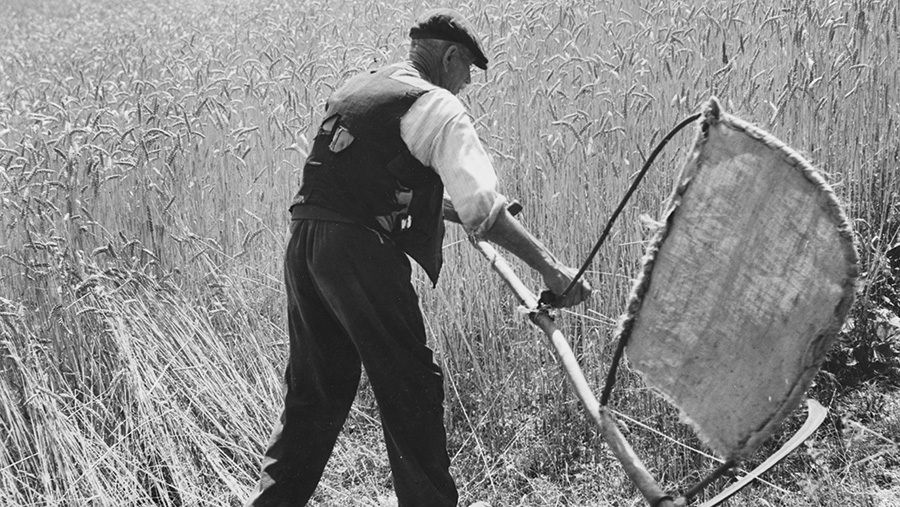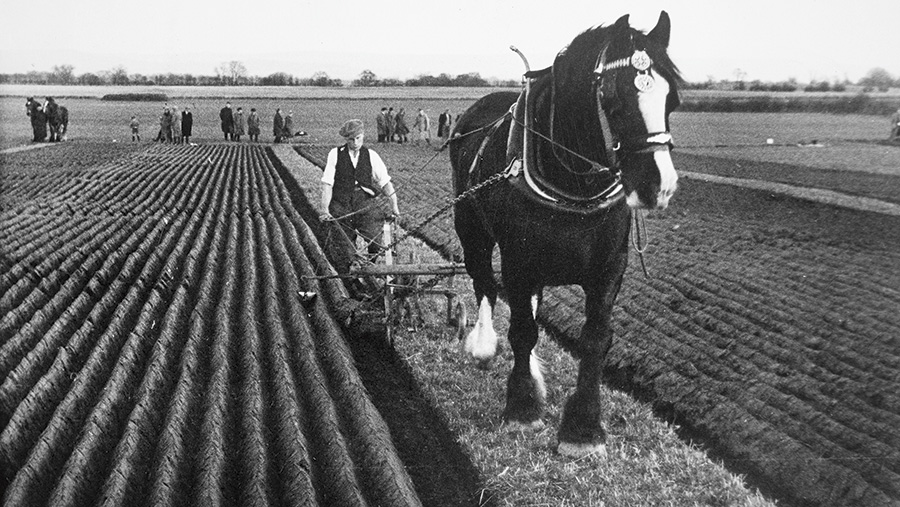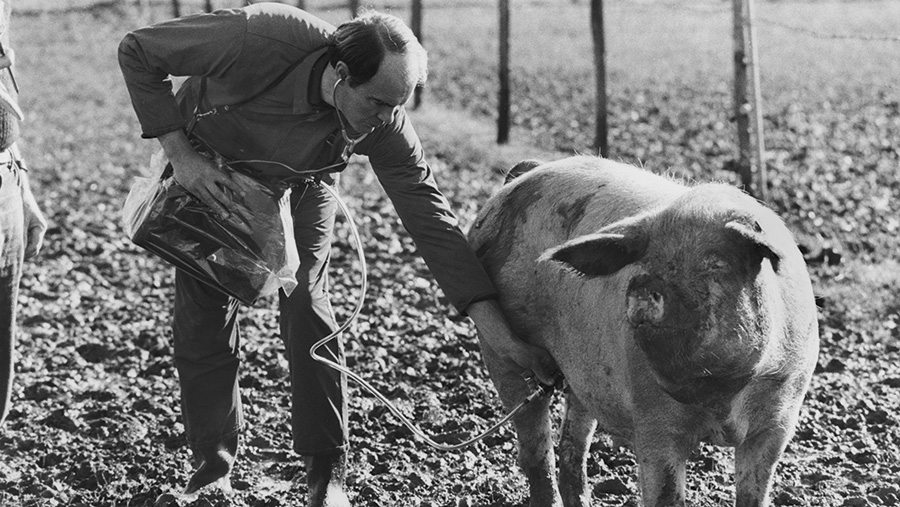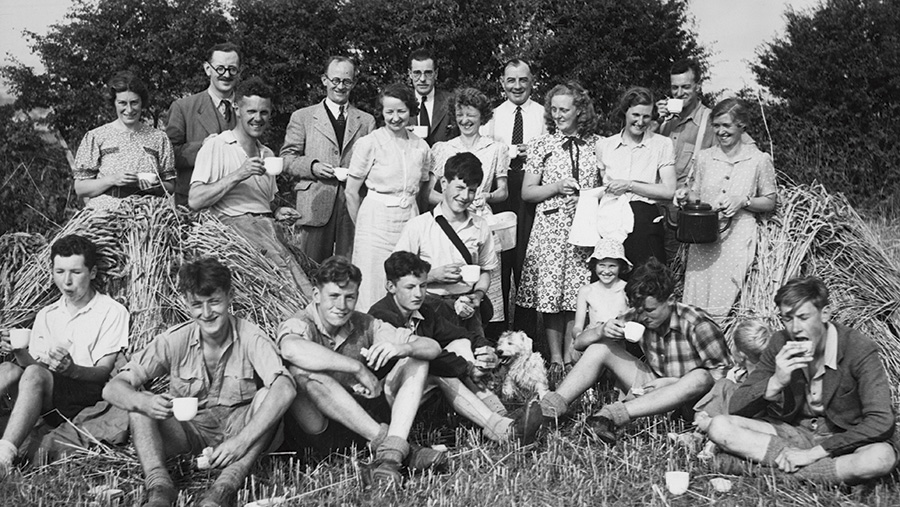Photos: Farming’s past showcased at museum re-launch
The Museum of English Rural Life (Merl), owned and managed by Reading University, has finished its £3m redevelopment programme.
This leading venue – housing an internationally recognised collection of more than one million items related to food, farming and the countryside – reopened this week (19 October) with £1.8m from the Heritage Lottery Fund (HLF).

Harvesting crops using a scythe
It has 341sq m additional space, lots of new features and has transformed its public displays, with nine new galleries curated around the concept of “Our Country Lives”.
See also: Cash and kudos on offer in Farmers Weekly’s photo contest

Mr A Revitt of Norton, ploughing at the Yorkshire County Championship 1952
Each gallery explores a different theme including “Making Rural England”, “A Year on the Farm”, “Forces for Change”, and “Wagon Walk & Digging Deeper”.

John Field checking for the foetal heartbeat of a sow at Hurricane Farm, Hambledon, Hampshire in 1981
Interactive displays explore questions of identity, environment, technology, culture and health, and aim to challenge perceptions about rural England by revealing the historical and contemporary relevance of country life.
Our Country Lives weaves stories, memories, archive film and photographs from rural lives through new displays, which aim to deepen engagement with today’s countryside.

London schoolboys help to save late potato crop at Horton, Surrey, in 1944
They will offer new perspectives on how agricultural tools and machinery, wagons, ploughs and traditional crafts such as woodturning, hurdle-making and thatching, baskets, strawcraft and leatherwork formed the essential fabric of rural lives.
Merl director Kate Arnold-Forster said the transformation “aims to create dynamic visitor experiences that help to change perceptions about the countryside and agriculture.
“We also hope to engage new generations with the rural past and present, and promote debate about the production of food and its future.”
The museum has worked alongside rural people, local communities and specialist researchers to “create displays and activities that engage with important debates about the future of food and the ongoing relevance of the countryside to all our lives”.
Museum of English Rural Life
- Located in Reading, Berkshire
- Established in 1951 to capture and record the rapidly changing countryside following the Second World War
- In 2005, it moved to its current premises in St Andrew’s Hall
